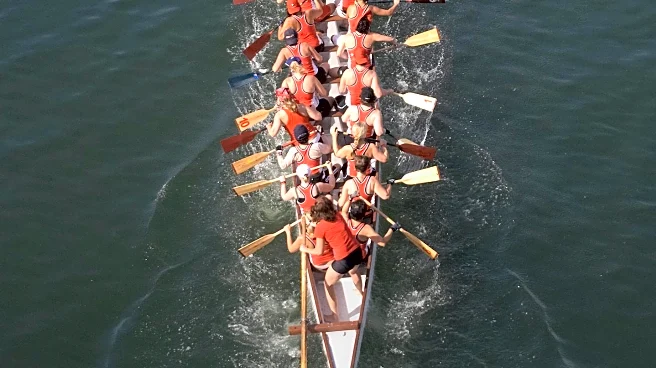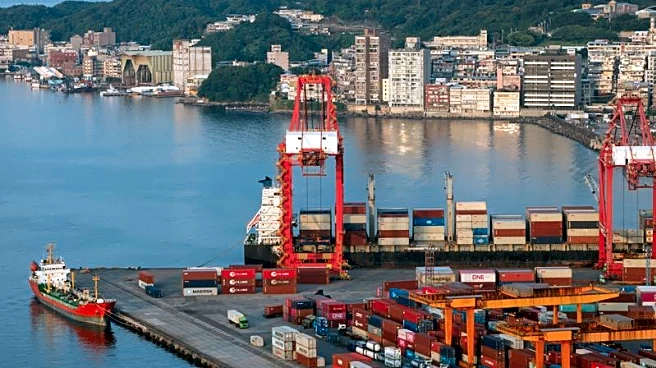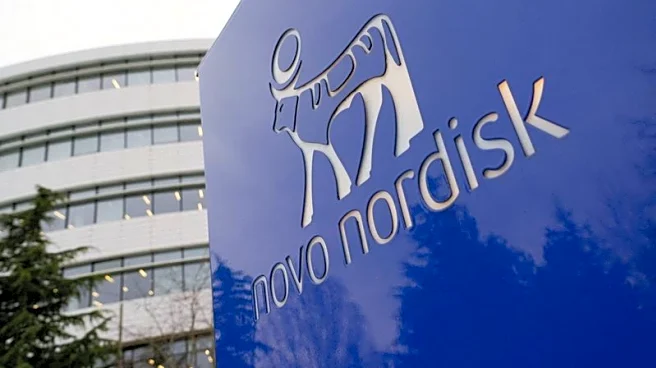What is the story about?
What's Happening?
Three Scottish brothers, Jamie, Ewan, and Lachlan Maclean, have set a world record by completing the fastest unsupported row across the Pacific Ocean. Their journey spanned 139 days, covering over 9,000 miles from Peru to Cairns, Australia. The brothers faced numerous challenges, including storms, seasickness, and injuries, while raising over £700,000 ($945,690) for clean water projects. Their arrival in Australia was marked by celebrations, including playing bagpipes and waving flags. The Maclean Foundation aims to fund clean water projects for 40,000 people in Madagascar.
Why It's Important?
The Maclean brothers' achievement highlights the potential for individual efforts to contribute significantly to global issues like access to clean water. Their record-setting row not only demonstrates human endurance and teamwork but also raises awareness and funds for critical environmental and humanitarian causes. The success of their fundraising efforts underscores the impact of combining adventure with philanthropy, inspiring others to engage in similar initiatives. The brothers' journey also brings attention to the importance of clean water access, a pressing issue affecting millions worldwide.
What's Next?
The Maclean brothers plan to continue their fundraising efforts to reach their target of £1 million ($1,350,450) for clean water projects. Their charity, the Maclean Foundation, will focus on implementing projects in Madagascar, potentially expanding to other regions in need. The brothers' achievement may inspire other adventurers and philanthropists to undertake similar challenges, furthering the cause of clean water access. Their story is likely to attract media attention and support from environmental and humanitarian organizations.
Beyond the Headlines
The brothers' journey offers insights into the psychological and physical challenges of extreme endurance events. It also highlights the role of family and teamwork in overcoming adversity. Their success may influence cultural perceptions of adventure and philanthropy, encouraging more people to engage in charitable activities through personal challenges. The focus on clean water projects emphasizes the ethical responsibility to address global inequalities in resource access.
















